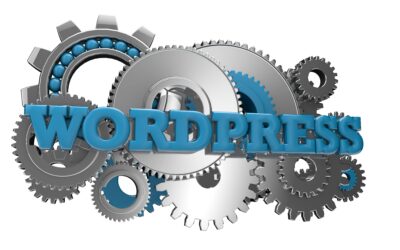Lots of HTML errors or sloppy coding may be a sign of a poor quality site. While controversial, many in SEO think that a well-coded page is used as a quality signal.
6 reasons why Google advice to validate your html
- Valid HTML and crawl rate: In Google search console support page about drops in crawl rate, Google advises that invalid HTML could affect the crawl and indexing of a web page.
- Affect browser compatibility : Google encourages the use of valid HTML in order to ensure proper rendering of web pages. Valid HTML is a good insurance policy, and using CSS separates presentation from content, can help pages render and load faster.
- Encourages a good user experience: Google uses the user experience as a signal in the ranking process. When you use valid html, it helps users to use your pages when all links go to live webpages. It enhances the user experience and hence increases the chances of higher ranking.,
- Ensures that pages function everywhere: Poorly coded HTML code
- Useful for Google Shopping Ads
- Invalid HTML in head section breaks Hreflang
How does domain authority affect SEO?
Domain authority is a search engine ranking score that predicts how well a website will rank on search engine result pages. A domain authority score ranges from one to 100, with higher scores corresponding to a greater ability to rank. Domain authority is calculated by evaluating multiple factors, including linking root domains and number of total links into a single DA score. This score can then be used when comparing websites or tracking the “ranking strength” of a website over time. Domain Authority is not a metric used by Google in determining search rankings and has no effect on the SERPs.
PageRank and it’s impact on SEO
PageRank is the mathematical formula that judges the “the value of a page” by looking at the quantity and quality of other pages that link to it. Its purpose is to determine the relative importance of a given webpage in a network.
Google takes into account three factors when calculating the PageRank of a web page, that are:
- The quantity and quality of inbound linking pages.
- The number of outbound links on each linking page.
- The PageRank of each linking page.
How does URL length affect SEO?
According to the backlink report URL length is an important ranking factor. Long URLs may damage a page’s search engine visibility. Short URLs on the other hands, tend to have a higher presence in search engine result pages.
How to create SEO friendly URLs
- Choose a top level domain: Try to use a top level domain for your URL. The ideal domain is “.com” rather than “.biz”, “.pro”, or “.tel”. It’s not that if you use other domains there is anything wrong. In fact, TLD does not directly impact rankings. But it does tend to increase the trust for human users.
- HTTPS is ideal: Online security is very important these days. Due to cyber crime and identity theft, people prefer to visit secure sites. So, it is highly recommended to use HTTPS rather than HTTP.
- Length: Short URLs are better and they are mostly preferred. Short urls tend to rank better than longer ones.
- Readability: There is a correlation between the user experience and SEO. A well crafted URL provides both humans and search engines with an easy-to-understand indication of what the destination page will be about. So try to structure your url for maximum readability.
- Use hyphen not underscore: When it comes to put space between the words then there are two options either you can use hyphen or an underscore. But Google highly recommends to use hyphens.
- Use lowercase letters: Using uppercase letters can potentially lead to redirects or 404 errors on certain servers. So always use lowercase letters.
How does URL path affect SEO?
A page closer to the homepage may get a slight authority boost vs. pages buried deep down in a site’s architecture. Try to use a maximum of two folders per URL. According to Moz, It’s not that the slashes (aka folders) will necessarily harm performance, but it can create a perception of site depth for both engines and users, as well as making edits to the URL string considerably more complex (at least, in most CMS’ protocols).
Human editor
Although never confirmed, Google has filed a patent for a system that allows human editors to influence SERPs.
Page category
Category of the page is a relevancy signal. Basically, category pages act as guides pointing Google in a specific direction. A page that’s part of a closely related category may get a relevancy boost compared to a page that’s filed under an unrelated category.
Tips to set up category pages:
- Organize category and limit to 8 to 10 maximum
- Optimize category titles and descriptions
- Avoid duplicate categories
- Make sure to add categories for every post
- Try to add category and sub-categories for the posts
SEO Content That Provides Value & Insight
Content provides value and unique insights It is very helpful to provide unique and valuable content to your audience. Unique content is straightforward enough, but what this unique content actually means? What is required to make this unique content? Let's discuss...
What are WordPress tags for SEO?
WordPress tags and categories play a vital role in organizing your site’s posts properly. They can help you to increase the web traffic, boost your page views, and offer a great experience to your potential customers. With the proper use of tags and categories, you...
What is The Importance of Multimedia For SEO?
Images, videos, and other multimedia elements may act as a content quality signal. Video content has grown to become an essential part of digital society. Adding videos to the websites helps to communicate to the target audience and provides flexibility, value, and...




